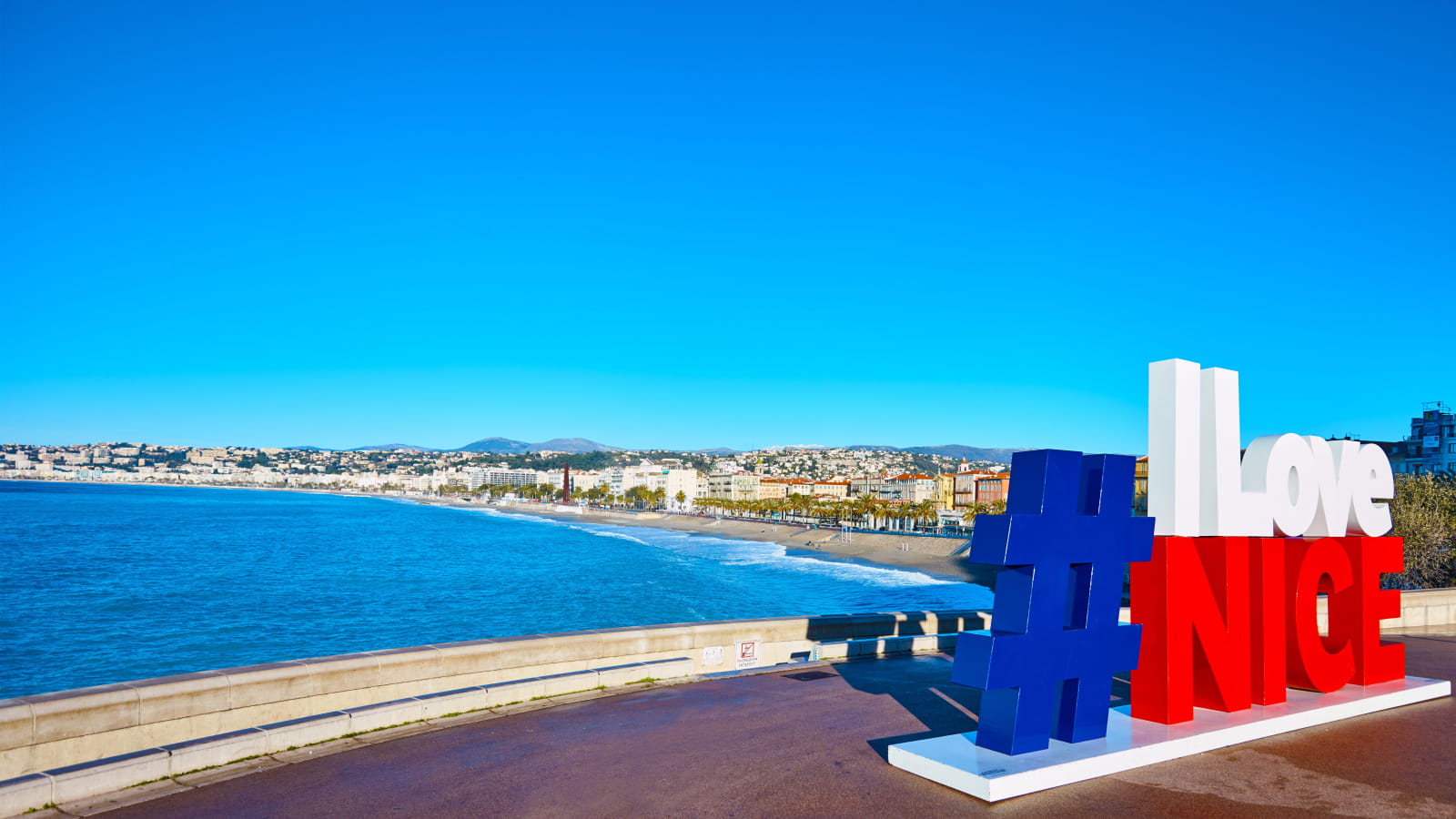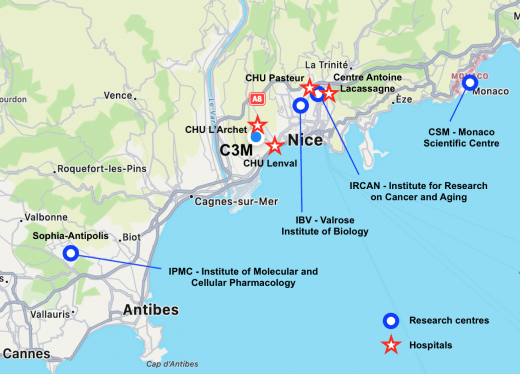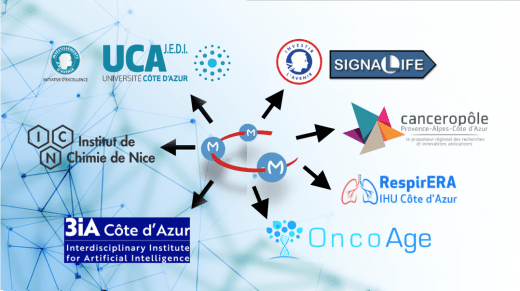
At the heart of the scientific environment of the Côte d'Azur
On the Côte d'Azur, C3M benefits from privileged climatic, geographical and cultural conditions.
Nice is served by the A8 motorway and Nice Côte d'Azur international airport (the second largest airport in France), and with 2,694 hours of sunshine per year and an average temperature of 16°C, it is a great place to live!
Nestled between the sea and the mountains, the area is full of natural and cultural treasures that attract many visitors each year: an exceptional coastline from the Italian border to the red rock massif of the Estérel, a middle country populated by picturesque villages, but also a mountainous massif that delights skiers as well as hikers from the Mercantour or Verdon parks.
The C3M is integrated into the Initiative of Excellence program UCAjedi IDEX and the Investment for the Future programme (SIGNALIFE Labex Laboratories of Excellence) of the Côte d'Azur University (UniCA).
The SIGNALIFE Labex aims to develop a network between leading research institutes in Nice. This project thus contributes to the establishment of an interactive network of regional life science institutes, focused on the study of signalling pathways in animals and plants, essential to our understanding of human health and fundamental biological processes.

Located between the Monaco Scientific Centre (CSM) and the Institute of Molecular and Cellular Pharmacology (IPMC) in the Sophia-Antipolis technology park, the C3M is integrated into a rich scientific and medical network, favourable to numerous local collaborations. The city of Nice has four hospitals (the Archet Hospital, Lenval paediatric hospital, Antoine Lacassagne anti-cancer Centre and the Pasteur hospital) and two other research centres (IRCAN - Institute of Research on Cancer and Aging and IBV - Valrose Institute of Biology).
The C3M maintains close relationships with hospital services, with 36 clinicians working at the C3M in close collaboration with researchers, and 12 clinical departments of local university hospitals collaborating with our research teams.

The richness of C3M's interactions with local research centres also comes from transdisciplinary approaches, such as with the Nice Institute of Chemistry (ICN) or the Interdisciplinary Institute for Artificial Intelligence (3IA Côte d'Azur).
The C3M is also integrated into the regional networks Cancéropôle PACA, FHU-OncoAge and IHU RespirERA.